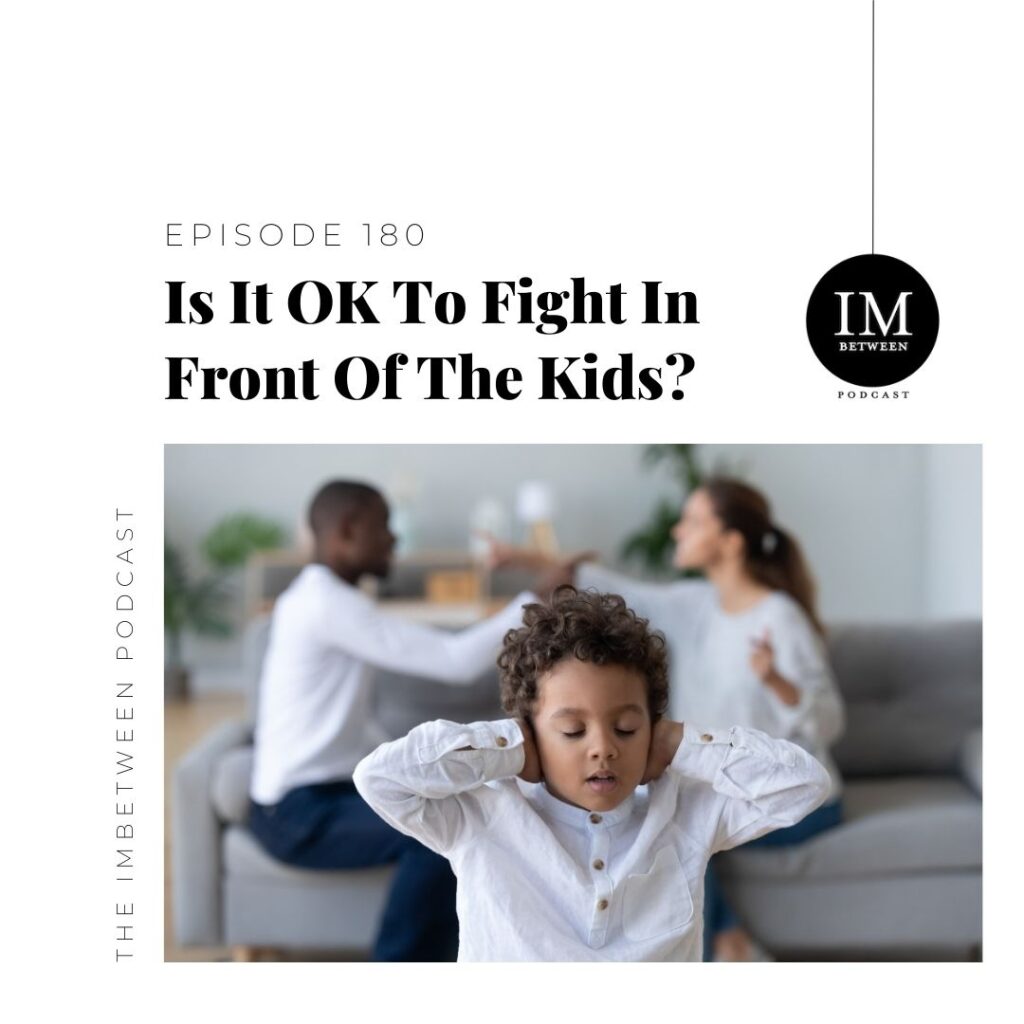180: Is It OKAY To Fight In Front Of The Kids?
Daniel and Christina delve into the complexities of resolving conflicts in a marriage, particularly in the presence of children. They discuss the importance of empathy, active listening, and collaboration in handling disagreements, and share personal anecdotes and strategies for effective communication. They also talk about the impact of parental conflict resolution on children, emphasizing the need for transparency and the creation of a safe space for family discussions. The episode offers practical advice for couples to navigate marital conflicts constructively while fostering a positive environment for their kids.

In This Episode, You’ll Hear About The Following:
- Healthy conflict resolution within a marriage
- Impact of conflict on children
- Importance of active listening and empathy
- Personal experiences and challenges in conflict resolution
- Solutions-focused therapy techniques
- Value of validating and empathizing with one’s spouse
- Developing empathy as a skill
- Collaborative aspect of conflict resolution
- Impact of healthy conflict resolution on children
- Creating a safe environment for discussing conflicts with children
Timestamps:
Is it okay to fight in front of the kids? (00:00:01) Exploring the impact of parental conflict on children and the nuances of healthy conflict resolution within a marriage.
The generational effect of parental conflict (00:00:57) The impact of parental conflict on children’s perceptions of relationships and the importance of modeling healthy conflict resolution.
The harmful effects of hostile conflicts (00:02:13) The negative impact of frequent hostile conflicts on children and the signs that a relationship needs help.
Gottman approach to conflict resolution (00:04:47) Understanding the concept of perpetual problems in relationships and the goal of regulating, rather than resolving, conflicts.
Listening and being heard (00:06:00) The importance of active listening and summarization in conflict resolution, fostering constructive dialogue and mutual understanding.
Empathy and perspective taking (00:13:33) The role of empathy in conflict resolution, its impact on emotional well-being, and fostering a deeper connection in relationships.
Empathy and perspective taking (00:18:39) The importance of empathy and perspective-taking in conflict resolution and share practical techniques for validation and understanding.
Collaborative conflict resolution (00:21:13) The significance of collaboration in conflict resolution, highlighting the need for mutual willingness to find sustainable solutions and the benefits of brainstorming together.
Transparency and family dynamics (00:25:40) The segment explores the educational value of children witnessing healthy conflict resolution, emphasizing the resilience of relationships and the importance of transparent communication within the family.
Repairing relationships (00:28:02) The importance of explicit communication and repair in the aftermath of conflicts, emphasizing the impact of parental transparency on children’s understanding and emotional well-being.
Resources Mentioned in This Episode:
Want to learn how to fight well? Here are some great past episodes that will help you do just that:
- A Conflict-Free Marriage Is Not The Goal
- How To Fight With Your Spouse Without Ruining Your Marriage
- How To Repair Your Relationship After A Big Fight
- Enneagram and Communication Styles
- Resolving Conflict with the Enneagram
- Fight Right: How Successful Couples Turn Conflict Into Connection by Drs John and Julie Gottman
Questions For Personal Reflection:
- Reflect on your own experiences: How did conflicts in your childhood home influence the way you approach disagreements in your relationship today?
- Can you think of a personal experience where witnessing conflict between you and your partner had either a positive or negative impact on your relationship or family dynamic?
- Reflect on your own conflict-regulation skills within the relationship. In what ways do you believe you and your partner model healthy conflict resolution for each other and for those around you?
Discussion Prompts For You As A Couple:
- As a couple, what are your thoughts on arguing in front of your children? Do you believe it can be a beneficial or detrimental experience for them?
- What are some examples of perpetual problems in your relationship? Can you identify any recurring issues in your own relationship?
- How might the understanding of perpetual problems change the way you and your partner approach conflicts?
- What messages do you think children receive when they witness their parents engaging in productive brainstorming despite disagreements?
